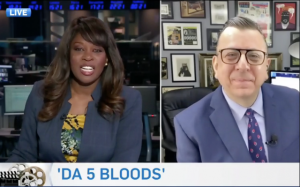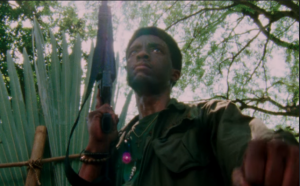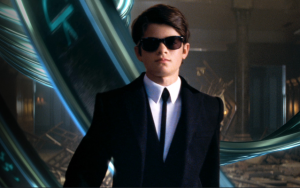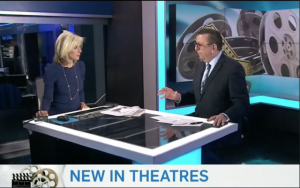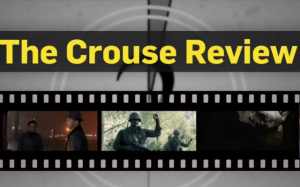THE BATMAN: 4 STARS. “a movie that flies by in the bat of an eye.”
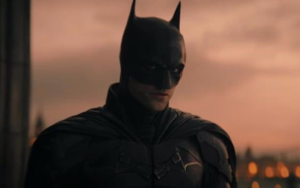 On some level Batman has always been escapist entertainment. The comics, TV shows and movies have always tackled big topics like morality, vengeance and the razor’s edge between anarchy and order but between Adam West’s grin, Michael Keaton’s gadgets and Christian Bale’s colorful foes, escapism is always part of the mix.
On some level Batman has always been escapist entertainment. The comics, TV shows and movies have always tackled big topics like morality, vengeance and the razor’s edge between anarchy and order but between Adam West’s grin, Michael Keaton’s gadgets and Christian Bale’s colorful foes, escapism is always part of the mix.
“The Batman,” starring Robert Pattison as the Caped Crusader, and now playing in theatres, is three hours of entertaining Bataction but the real-world themes of distrust in elected officials, our constitutions and each other, provide anything but escapism.
The story begins on Halloween night, as costumed criminals swarm Gotham City. As chaos reigns on the streets, the Bat-Signal illuminates the sky. “When the light hits the sky it’s not just a beacon,” says Batman (Pattison), “it’s a warning… to them. Fear is a tool.”
It’s a tool Batman uses effectively. His masked presence, his fists of fury and habit of snarling, “I’m vengeance,” have made him a fearsome presence in Gotham City. The rank-and-file police don’t know what to make of the Caped Crusader, but Detective James Gordon (Jeffrey Wright) sees him as an asset, particularly when high ranking city officials begin dying at the hands of The Riddler (Paul Dano), a psychopath whose costume suggests he is a fan of the Gimp from “Pulp Fiction.”
At each grisly murder the Riddler leaves behind a cutesy card for Batman, inscribed with a riddle, like “What does a liar do when he dies?” that could serve as a clue to solve the crime.
As the evidence, and the bodies, pile up, Batman’s investigation leads him to a wide-ranging conspiracy involving a local crime boss (John Turturro), his minion Oswald Cobblepot a.k.a. The Penguin (Colin Farrell doing a pretty good impression of James Gandolfini), a long-held Wayne family secret and nightclub worker and cat burglar Selina Kyle a.k.a. Catwoman (Zoë Kravitz).
“The Batman’s” almost three-hour running time may seem daunting, particularly in the wake of several overly long superhero movies that haven’t delivered the goods. I’m happy to report that director Matt Reeves has crafted a movie that flies by in the bat of an eye.
This is not an origin story, that tale has been told over and over. It is more of a coming-of-age tale. As played by Pattison, Bruce Wayne is a dour and sour hero who, when asked, “Are you hideously scarred?” replies “Yeah.” His scars, however, are all on the inside.
He is driven by a sense of vengeance to clean up the streets of the kind of people who killed his parents. That, he says, is his legacy, not the fabulously wealth of Wayne Enterprises. As the story progresses his mood doesn’t change—it’s as if Pattison’s perfect cheekbones would shatter if he ever cracks a smile—but his outlook does. Batman may be the face of vengeance, but by the time the end credits roll, he realizes hope trumps vengeance. “People need hope,” he says. “To know someone is out there for them. The city is angry. The city won’t change, but I have to try.”
After five “Twilight” movies Pattison understands how to brood on screen. He is comfortable with the stillness the character requires, which works well to emphasize the Batman’s loner status. The stillness of the character, when he isn’t running, jumping or jackhammering a bad guy, suggests a calm but that sense is betrayed by the simmering rage behind Pattison’s eyes. It is that anger that gives him an unspoken reason to exist.
This is a Batman who is still figuring things out, who is fueled by his single-minded need for revenge, but working to funnel his energies in a way that will benefit him, the people he loves and Gotham City. He doesn’t have superpowers, just a powerful drive and a handful of gadgets. He’s a one-man army, and Pattison does a good job of showing us, not telling us, the complexity of the character.
Director Reeves has stripped away much of the slickness of the Christopher Nolan and Zack Snyder films in favor of a grittier vision. Think 1970s movies like “Chinatown,” “The French Connection” or “Taxi Driver.” Reeves has made a boiled down detective noir that scales back the theatrics of previous versions to concentrate on the personal stuff.
But that doesn’t mean there isn’t action to spare. The new Batmobile, now a muscle car, makes its debut in a wild car chase and Pattison’s Batman doesn’t kill people, unlike Affleck’s take on the character, but that doesn’t mean he isn’t willing to pummel the heck out of his adversaries.
“The Batman” is an interesting new direction for the Caped Crusader movies. There have been better villains in other films and the sins of the father angle has been explored before, but this movie captures the zeitgeist in a very interesting way. It confronts hot button topics like the alt right, agents of chaos and lying politicians, issues ripped from the headlines, but is tempered with a message of hope, of rebuilding belief in the world around us.
I suppose every generation gets the Batman they deserve. Our hard knock world has delivered us a Batman with an edge; a troubled hero who almost succumbs to his worst tendencies, but, in the end, looks toward a horizon of hope. It’s a powerful message for our world gone mad, particularly when it comes from a guy in a mask.
